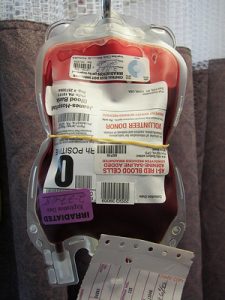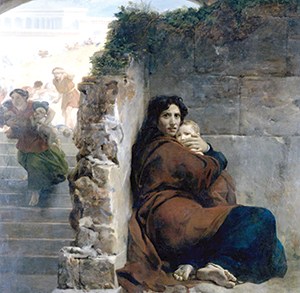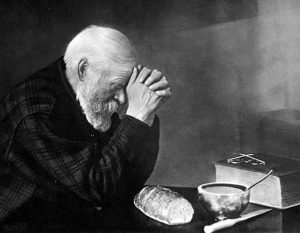Blood
Perhaps you recall riding by an automobile accident, or watching the evening news when someone had been killed. Generally, where there is bloodshed, the body of the slain will be covered to prevent us from seeing the blood. Why? Because even the mention of the word “blood” conjures up all sorts of emotion.
 For many, even the thought of blood can cause a sick feeling in the pit of the stomach. Others search the internet to gawk at bloody scenes as if they were some form of entertainment. Children, and adults who refuse to grow up, are incrementally desensitized by the vile produce of Hollywood or by violent video games which allow them to be the cause of carnage that reaps no consequence, other than to make them the high scorer of a foolish game.
For many, even the thought of blood can cause a sick feeling in the pit of the stomach. Others search the internet to gawk at bloody scenes as if they were some form of entertainment. Children, and adults who refuse to grow up, are incrementally desensitized by the vile produce of Hollywood or by violent video games which allow them to be the cause of carnage that reaps no consequence, other than to make them the high scorer of a foolish game.
In real life, for those whose minds are not deranged, blood is precious. Perhaps you have given blood to the blood bank where your own blood was pumped from your veins by your own heart into a sterile bag, by measure. Maybe you were the recipient of someone else’s blood after an accident or at the time of surgery. There is something altogether different about the way we think when blood is properly contained and utilized to preserve life.
Satan, the enemy of our souls, is certainly interested in how we think about blood. He is delighted when we are sickened by the thought of it. He is thrilled when we measure entertainment by the pints of blood that are splattered on our screens.
The Bible tells us, “For the life of the flesh is in the blood… (Lev. 17:11).” Blood is indeed precious and its loss is critical. How precious? How critical? God would have you know that it was the precious blood of His own Son that purchased forgiveness for all that will come to Him by faith. The story of Jesus’ passion is not to be covered for the squeamish, nor gawked at by the perverted thrill seeker. Take a serious look; Jesus gave His life’s blood for you.




 Though what I am about to say will necessarily sound political, let me assure you that it is not my purpose to make a political statement. In a free country, multiple philosophical differences about the role of government will in time manifest themselves. There will always be individuals who are wealthy, independent, intellectual, and in their own estimation, destined to rule. This ruling class stands to gain if there are many dependent, poor and ignorant paupers for them to exercise authority over. These underlings are willfully dependent upon the proverbial “they” who are assumed, by some unwritten law, to be obligated to meet their every need.
Though what I am about to say will necessarily sound political, let me assure you that it is not my purpose to make a political statement. In a free country, multiple philosophical differences about the role of government will in time manifest themselves. There will always be individuals who are wealthy, independent, intellectual, and in their own estimation, destined to rule. This ruling class stands to gain if there are many dependent, poor and ignorant paupers for them to exercise authority over. These underlings are willfully dependent upon the proverbial “they” who are assumed, by some unwritten law, to be obligated to meet their every need.